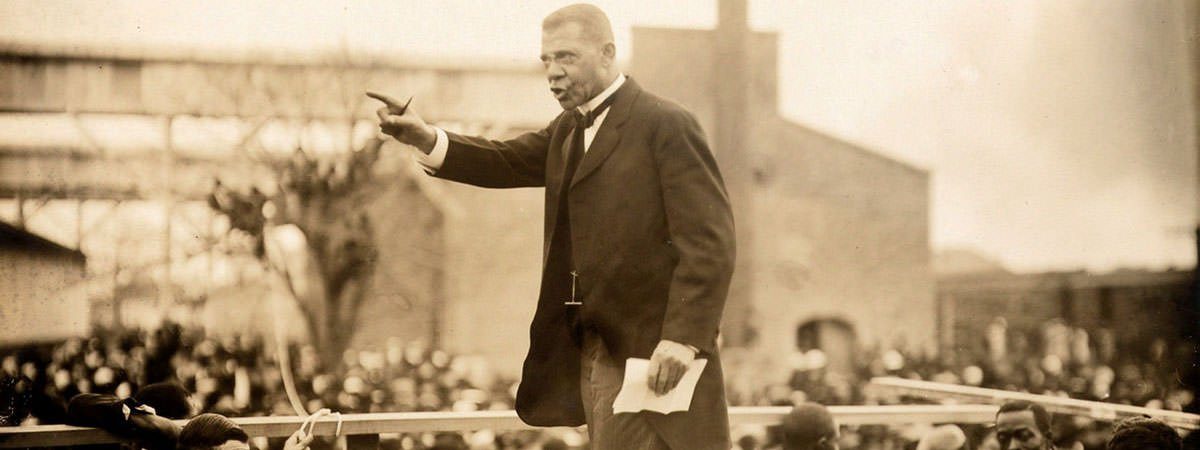Booker Taliaferro Washington (1856 – 1915) was an African American educator, author and orator who became one of the most prominent leaders of the black community. Born into slavery, Washington was freed after the Emancipation Proclamation. After being educated, he built a network of numerous well-known entrepreneurs and philanthropists helping secure huge donations for the betterment of the African American community. Such was his stature, that he became the first African American to be invited at the White House by an American president. However, this led to a major controversy leading to the administration denying the fact. Washington also remains controversial for his views. For instance, he was responsible for the now infamous Atlanta Compromise; and expressed views such as whites could teach the blacks how to be civilized. Know more about Booker T. Washington through these 10 interesting facts.
#1 HIS ENTRANCE EXAM AT SCHOOL WAS TO MOP THE FLOOR
In 1872, at the age of sixteen, Booker T. Washington traveled around 500 miles on foot from Malden to Hampton to enroll in the Hampton Normal and Agricultural Institute. When he reached Hampton he was hungry and penniless. The head teacher Miss Mackie had no pity for him. Instead, she told him to sweep the floor as an entrance examination. Washington took it as a challenge, sweeping it 3 times, mopping it and washing the walls. Miss Mackie then inspected his work with a spotless, white handkerchief. Impressed with his hard work, she let Washington into the school. However, he had to work as a janitor to pay the cost of his room and board. Washington went on the graduate from the institute with honors.
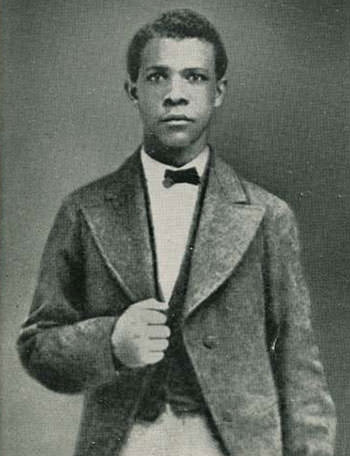
#2 HE LED HIS STUDENTS TO BUILT THEIR OWN SCHOOL
In 1881, the 25-year-old Booker T. Washington become the first leader of the Tuskegee Normal and Industrial Institute in Tuskegee, Alabama. At the time of his arrival, the institution had two small converted buildings, no equipment and very little money. Undaunted, Washington began selling the idea of the school, recruiting students and seeking support of local whites. The school opened on July 4, 1881. Washington then borrowed money from the treasurer of Hampton Institute and purchased an abandoned plantation on the outskirts of Tuskegee, which became the permanent site of the campus. Under the direction of Washington, the students then built their own school: constructing the barns and outbuildings and even growing their own crops and raising livestock. This added to the learning experience of the students while also providing for all their basic amenities.
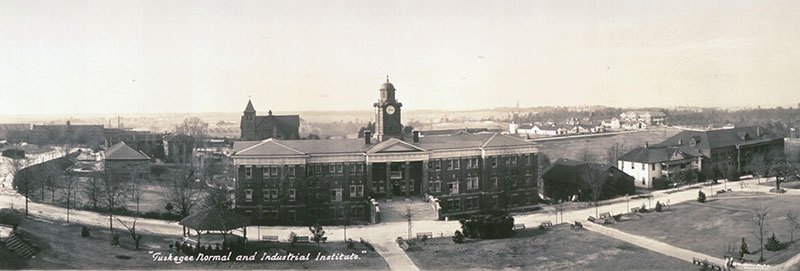
#3 HIS ATLANTA COMPROMISE WAS LATER CONSIDERED TO BE A MAJOR DISASTER
On September 18, 1895, Washington gave a powerful speech which became the basis for the Atlanta Compromise, an agreement that Southern blacks would work and submit to white political rule, while Southern whites would guarantee that blacks would receive basic education and due process in law. Though the Atlanta Compromise was initially viewed as a “revolutionary moment” by most African Americans and whites across the country, with time it did not go down well within the black community and was later opposed by the very people who were earlier supporting it. It was primarily criticized on the basis that it was too accommodating to the white community and that the black people gained little from it.
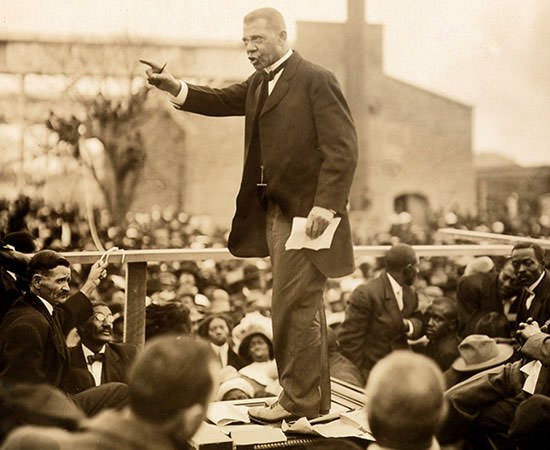
#4 HIS AUTOBIOGRAPHY WAS WRITTEN WITH THE HELP OF A GHOST WRITER
Booker T. Washington hired a ghostwriter named Edgar Webber to write his autobiography that was titled The Story of My Life and Work that was published in the year 1900. Although the book did well in sales, Washington was not at all pleased with the writing style, considering it to be flatly written with poor editing. Sometime later, he hired a well-known writer named Max Thrasher to help him compile a second autobiography titled Up from Slavery, which was published the following year. Up from Slavery became a bestseller and had a major impact on the African-American community. Moreover, it was included in the Modern Library’s list of the 100 best books to read of the 20th Century.

#5 WASHINGTON WAS KNOWN FOR HIS GREAT SENSE OF HUMOR
Booker T. Washington was a powerful public speaker of his time for both black and white audiences alike. He often used humor as an instrument to put people at ease, especially the ones who disagreed with his views. According to his contemporary James Hardy Dillard, Washington “could not only tell a good joke well but tell what was only the shadow of a joke so well that his audience would be shaken with laughter”. Interestingly, many of his one-liner jokes involved racial stereotypes and dialect. For instance, at the time of receiving his honorary master’s degree from Harvard, Washington said, “I feel like a huckleberry in a bowl of milk.”
#6 THERE WAS A MAJOR CONTROVERSY REGARDING HIS DINNER WITH THE PRESIDENT
In October 1901, President Theodore Roosevelt invited Washington to dine with him and his family at the White House. Washington was the first African American to be invited there by a president. The following day, the White House released a statement with the heading, “Booker T Washington of Tuskegee, Alabama, dined with the President last evening”. This led to widespread condemnation of the president from southern politicians and press. Memphis Scimitar declared the invitation to be “the most damnable outrage which has ever been perpetrated by any citizen of the United States”. Following the backlash, the Roosevelt administration ate their own words, suggesting that the dinner did not take place or it had been a simple lunch where none of the family members of Roosevelt were present. Moreover, no other African American was invited to dinner at the White House for almost the next thirty years.
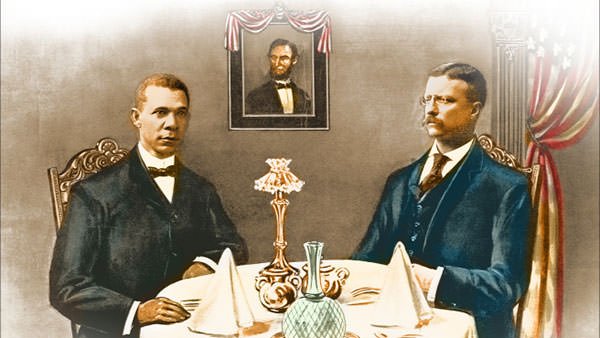
#7 HE BELIEVED THE BLACKS NEEDED TO PROVE THAT THEY WERE RESPONSIBLE CITIZENS
Washington always advocated a “go-slow” approach when it came to fighting the oppression of the blacks, to avoid any substantial backlash from the whites. He believed that African American should “concentrate all their energies on industrial education, and accumulation of wealth, and the conciliation of the South”. Since most African Americans lived in the South during the time, Washington held industrial training in high regards, believing that these skills would lay the foundation of stable roots that were critically required by the African American community to move forward. He believed that through this approach, in the long term, “blacks would eventually gain full participation in society by showing themselves to be responsible, reliable American citizens”.
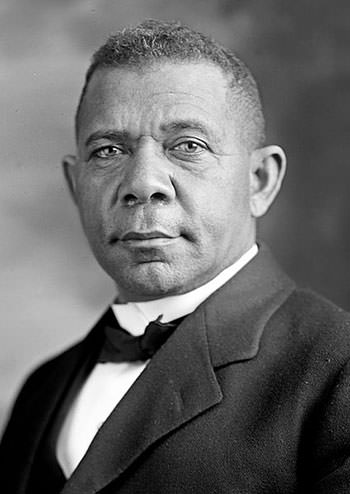
#8 HE ALSO BELIEVED THAT WHITES COULD TEACH THE BLACKS HOW TO BE CIVILIZED
In another controversial stand, Booker T. Washington considered that in the short run, blacks have to serve as subordinates to white people in order to attain financial independence of them in the long run. Hence, he believed vocational training and manual work to be the pinnacle of professional freedom that the African Americans could exercise. Booker T. Washington’s also believed that white could serve as role models for the black community, as they could teach them to be “civilized”. Washington’s views, though controversial, were popular among many people at the time. It was only later that leaders like W. E. B. Du Bois pushed the black community to work towards gaining the same “classical” liberal arts education as upscale whites did as well as to fight for voting rights and civic equality, which had already been legally granted to them.
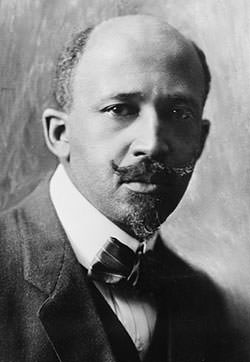
#9 WASHINGTON WAS THE FIRST AFRICAN AMERICAN TO BE DEPICTED ON A US POSTAGE STAMP
In 1896, Harvard University granted Washington an honorary master’s degree to acknowledge his contributions to American society. He also received an honorary doctorate from Dartmouth College in 1901. On April 7, 1940, Booker T. Washington went down in history as the first African American to be depicted on a United States postage stamp. In 1942, the liberty ship Booker T. Washington was named in his honor, making it the first major ocean going vessel to be named after an African American. In 1946, he featured on the Booker T. Washington Memorial Half Dollar, which was minted by the United States until 1951. This made him the first African American to be depicted on an American coin.
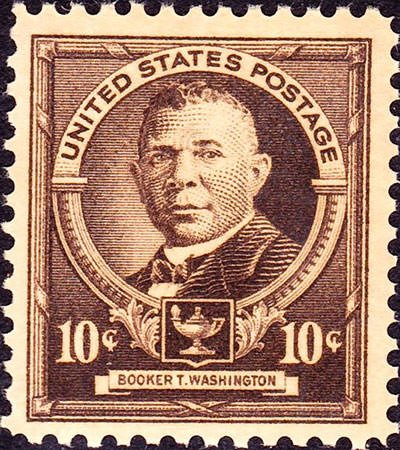
#10 HISTORIAN ARE DIVIDED ON THEIR OPINION ON WASHINGTON
Historians around the world today remain divided in their characterization of Washington. While some consider him to be a visionary who was an expert psychologist, others consider also him to be a self-serving narcissist who would always want his way and punished those who stood before him. Many have also gone on to question his way of traveling considering it to be more extravagant than required. Also, they believe that he allocated more time than necessary to activities such as fundraising, signing of autographs and delivering of patriotic speeches. Also, the Atlanta Compromise and his views that the blacks first needed to prove that they were responsible citizens before gaining equal rights, are now controversial and criticized by many including African Americans.

